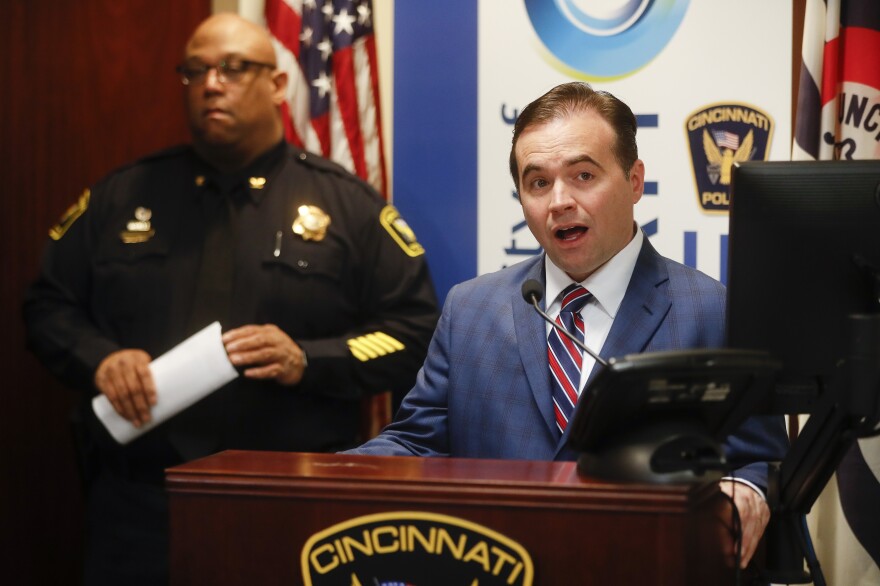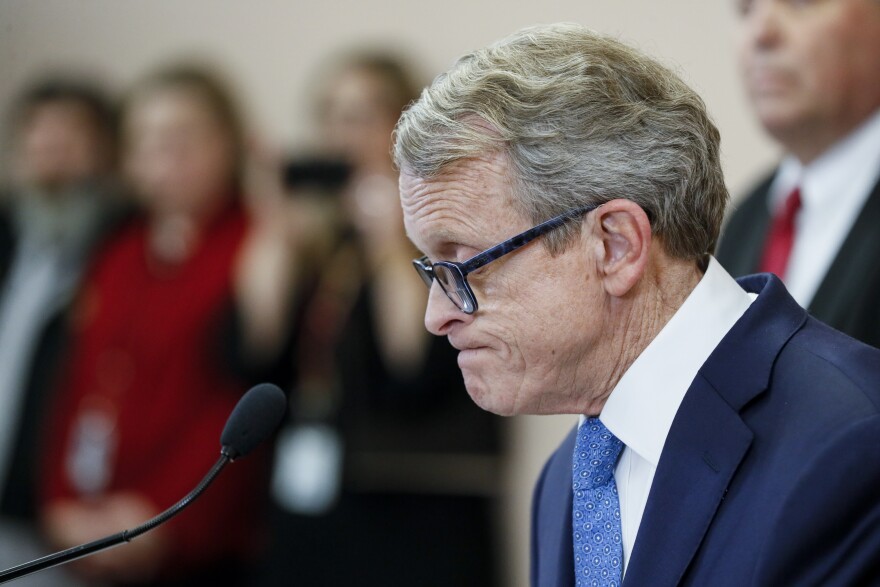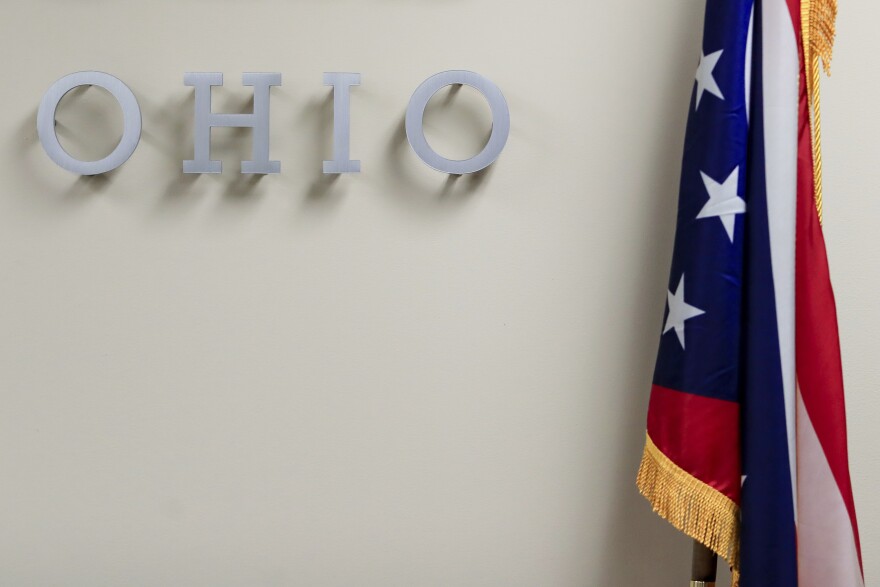This column is a look-ahead at politics in this corner of the world. It is not by any means a prediction of the future.
I am not Carnac the Magnificent. (Younger readers, just Google it.)
Anyone who tells you that he or she predicted a year ago all the weird twists and turns the politics of 2020 would take is fibbing, to put it mildly.
So you'll get no predictions for 2021 here. If that's what you are looking for, buy an Ouija board.
What follows is all about what is likely to transpire in this neck of the woods in the eagerly awaited 2021.
Here goes:
The "Culture Of Corruption" At Cincinnati City Hall - Will It Continue?

2020, as we know, saw three sitting members of Cincinnati City Council indicted on federal corruption charges in a wide-ranging FBI investigation that is likely not over yet.
Democrat Tamaya Dennard, waiting to begin serving an 18-month prison sentence after pleading guilty to a wire fraud charge. Republican Jeff Pastor, charged with bribery and related crimes in connection with allegedly taking money from a developer in exchange for his vote on a downtown development project.
And, finally, P.G. Sittenfeld, the Democratic council member who had been considered the leading candidate to become the city's next mayor in 2021, indicted in November on charges of wire fraud, bribery and attempted extortion for allegedly taking money illegally for a political action committee he controls.
That, by the way, is three more council members indicted on felony corruption charges, than in the previous 94 years of Cincinnati's council-manager form of government.
Sittenfeld and Pastor are both suspended from council while their cases are working their way through the courts. Sittenfeld voluntarily stepped down, while Pastor was suspended by the probate court at the request of Ohio Attorney General Dave Yost.
Dennard is slated to start serving her prison sentence in March. U.S. District Court Judge Susan Dlott sentenced Dennard in November but delayed her imprisonment until March because of COVID concerns in the prison system.
It is likely that the cases of Pastor and Sittenfeld will be resolved one way or another some time in 2021. Last week, Sittenfeld's lawyers filed a 20-page motion to dismiss the case against him, claiming the federal prosecutors produced no evidence of a crime. The motion will be heard in U.S. District Court in February.
The great unknown: Will there be more indictments in the FBI's corruption investigation at City Hall? David DeVillers, the U.S. Attorney for the Southern District of Ohio, has left the door open.
A Rugby-style Scrum For Cincinnati City Council Seats

The aforementioned indictments, with two council members suspended and one resigning, changed the face of the 2021 city council election completely.
It was going to be a highly competitive race anyway, with a number of council members term-limited out, but, now, with no less than four appointed council members likely to face the voters for the first time in November, it is wide open.
Greg Landsman, a Democrat, is the only incumbent running for re-election.
The four appointed members are Republican Betsy Sundermann (appointed early in 2020 to replace Amy Murray, who went to work for the Trump administration), Jan-Michele Lemon Kearney (who replaced Dennard), Republican Steve Goodin (who took Pastor's place) and Liz Keating (a Republican appointed by the Republican probate court judge to take the seat of Sittenfeld, a Democrat).
Three Democrats who are term-limited out – David Mann, Wendell Young and Chris Seelbach – have announced their plans to run for Cincinnati mayor in 2021. A fourth term-limited incumbent, Independent Christopher Smitherman, said in January 2020 that he would not run for mayor, but is apparently having second thoughts after the indictment of Sittenfeld.
The fact that there will be so many open seats is likely to draw one of the largest fields of council candidates in recent memory. Independent Kevin Flynn, a former council member, and Democrat Michelle Dillingham, who has come close to winning a council seat twice, are in the field. Both will be strong candidates.
Who Gets John Cranley's Job As Mayor?

If you had asked that question a couple of months ago, the answer would have been Sittenfeld, most likely. But being indicted on federal corruption charges is no way to launch a mayoral campaign.
We've already mentioned the three term-limited council members who say they are running for mayor – Mann, Seelbach and Young – but there are plenty more real and potential candidates waiting in the wings. One is the aforementioned Smitherman.
Perhaps the most surprising potential candidate is former mayor Mark Mallory, who served in that office for two terms from 2005 to 2013. Mallory has told WVXU he is contemplating a comeback and has picked up petitions at the Hamilton County Board of Elections.
Cecil Thomas, the former Cincinnati council member and state senator, says he plans to run. And two lesser known candidates declared their intentions early in 2020 – community activist Kelli Prather and firefighter Raffel Prophett. Prophett, by the way, is the only one who has filed his petitions and qualified for the May 4 primary ballot.
What all of the above candidates have in common is that they are all, with the exception of Smitherman, Democrats. The Republican Party doesn't have a candidate at this point and the GOP seems to be concentrating on winning council seats.
Cincinnati is a heavily Democratic city and it is hard to imagine any Republican winning a general election for mayor.
One thing to keep in mind as the mayoral drama unfolds: anyone can go to the board of elections and pick up petitions to run for mayor. You don't become a real candidate until you turn them in and have enough valid signatures to make the ballot. The deadline for doing that is Feb. 18. The primary is May 4, with the top two finishers facing each other for the mayor's office in November.
Or not.
Should DeWine Be Looking Over His Shoulder?

You would think that Ohio Gov. Mike DeWine has enough to worry about with the pandemic still raging in Ohio, the COVID-19 death toll still rising, and the slow start to distributing vaccines around the state. But he also has to keep an eye on the Trump wing of his Republican Party, which could rise up against him when he runs for re-election in 2022.
Donald Trump has been stirring the pot, upset at DeWine because he went on CNN to say that Joe Biden was the president-elect. That would seem obvious to most of us, but not to Trump.
It would not be surprising at all to see a Trump loyalist like former congressman Jim Renacci of Medina County announce a campaign for governor in 2021. Or perhaps even Warren Davidson, the congressman from Troy whose district includes Butler County – although that's a little less likely because Davidson would have to forego a safe seat in Congress to take on DeWine in a primary.
Both have been all over Twitter for months now hammering at DeWine's COVID-19 orders and his handling of the state's economy.
Long before the new year is out, it is likely we will know if DeWine will have a clear path to be re-nominated for governor in 2022 or not.
The Drawing Of New Legislative District Lines

At some point, Ohio will get its 2020 data from the U.S. Census Bureau and can begin the process of re-drawing congressional district lines under a new set of rules passed by the voters in 2018 that may take at least some of the partisan gerrymandering out of the process.
What we don't know yet is whether or not Ohio will keep its current allotment of 16 congressional districts or lose one because of weak population growth.
The new process will still be dominated by the majority Republicans in the Ohio House and Senate, but they won't be able to approve a plan unless at least half of the Democrats in the legislature go along.
If the legislature can't agree on a 10-year plan, it could pass a four-year version that would still have to follow the new rules of compact geographical districts and limited splits of counties.
In southwest Ohio, it is hard to imagine that a ridiculously gerrymandered district like Ohio 1, held by Republican Steve Chabot, with its silly land bridge from western Hamilton County to connect it with heavily Republican Warren County, would pass muster under the new rules.
That cozy little arrangement meant to prolong Chabot's political career is probably over.
Howard Wilkinson is WVXU's senior political analyst.




